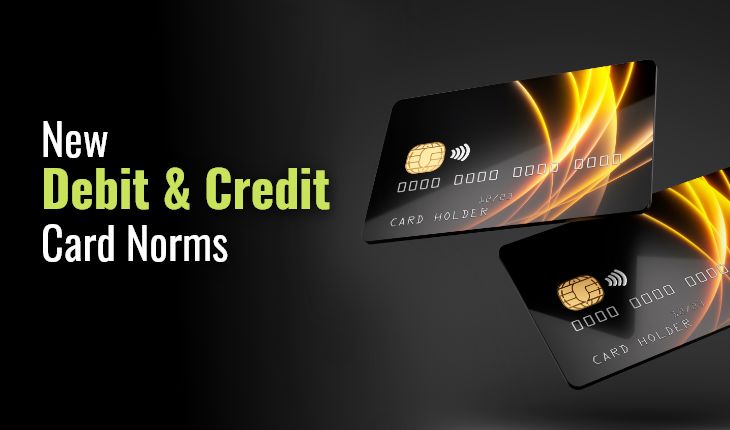Check Out RBI’s New Rules Regarding Debit and Credit Cards

Last Updated : July 14, 2022, 12:53 p.m.
The Reserve Bank of India (RBI) has introduced fresh rules regarding debit and credit cards for banks and NBFCs to meet. Failing to comply with these norms would lead to penalities for banks and non-banking finance companies (NBFCs). Now, NBFCs can issue credit cards only after approval from the regulator. The RBI has disallowed lenders to adjust the overdue interest to the loan amount. They need to ensure no capitalization of unpaid charges, levies and taxes for calculating compound interest. Well, these directions are effective from July 1st, 2022. Read the page for more information about debit and credit card norms.
Let’s Check Out the Latest Debit and Credit Card Norms
These norms include the disclosures made by the RBI on who will issue credit cards to people, consequences for lenders regarding unsolicited card issues and upgrades, etc. All these debit and credit card norms are set to make customers’ experience much better.
Who Can Issue Credit Cards?
As per the new rules, banks and NBFCs can issue cards if the following conditions are met –
- Having a net worth of INR 100 Crore and above
- Urban cooperative banks (UCBs) with a minimum net worth of INR 100 Crore
- NBFCs need RBI’s special permission to issue cards both virtually and physically
Rules Regarding Unsolicited Issues and Upgrades of Debit and Credit Cards
RBI singled out unsolicited issues or card upgrades to secure customers against liabilities arising from such issuances. In case, an unsolicited card is issued, upgraded and activated without consent, the issuer should reverse the charges and pay a penalty without delay to the recipient. The penalty will be twice the value of the charges reversed. In addition, customers can approach the RBI Ombudsman who will later determine the amount of compensation.
According to the RBI, card issuers will be held responsible for any loss arising due to misuse of unsolicited cards. Card issuers can seek OTP-based consent from the cardholders for card activation if the former has not done the same before 30 days from its issuance date. In case of no consent, the card issuer can close the credit card account without charging any penalty.
Lenders can close accounts within seven working days from the date of seeking confirmation from the customer. Banks can’t share any information with credit information companies before the card activation. Lenders need to report information regarding inactivated cards to credit information companies so that they can be withdrawn immediately. Card-issuer’s representatives can contact you between 10 a.m. and 7 p.m.
Norms for Credit Card Closures
As per the new guidelines of RBI, Banks and NBFCs need to follow the below norms for credit card closures-
- Banks should honour requests for closing a credit card by sending an email, SMS, etc. to customers
- Active helpline, dedicated email-id, Interactive Voice Response (IVR), prominently visible links on the website, internet banking, mobile app, or any other mode to close cards
- If the closure doesn’t complete within seven working days, issuers will have to pay INR 500 per day to the customer, till the closure of the account
- If a credit card is not used for more than one year, lenders can close the same only after intimating you about the same. In case of no reply within 30 days, the card issuer can close the account provided the cardholder has paid all the dues.
- After the closure of the account, if there is any credit balance left, cardholders will get the same on their bank accounts.